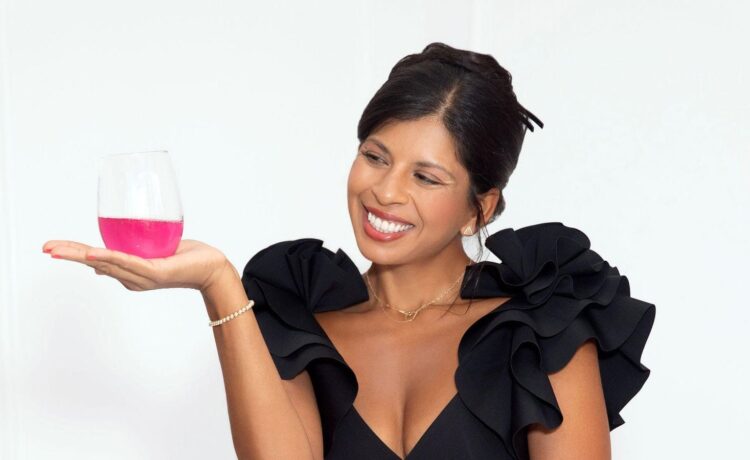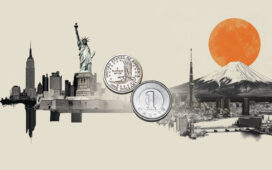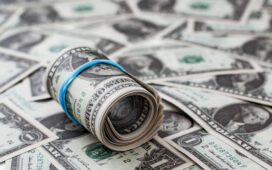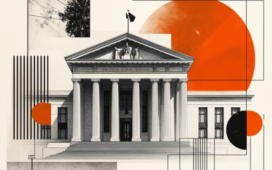When Michelle Cordeiro Grant launched Gorgie, the better-for-you energy drink with wellness benefits and aesthetic appeal, she wasn’t just cracking open a can. She was cracking open an entire category.
The energy industry, as we knew it, had long been dominated by masculine-coded players like Red Bull and Monster.
“I look for billion-dollar categories where legacy brands still have the lion’s share, but the consumer, especially women, is being overlooked,” she says. “That’s where I build.”
Launched in January 2023, Gorgie has already raised $37M in funding, including a $24.5M Series A, and has expanded to more than 1,900 Target stores nationwide. But the brand’s ambitions stretch far beyond functionality.
Earlier this summer, it debuted a swimwear line called the “Cabana Collection,” at Miami Swim Week, which was so successful it was followed by invitations to appear at swim shows in Hawaii, Las Vegas, Atlanta, and Seattle.
“Beverage, but make it fashion” isn’t just a clever tagline: it’s a brand-building playbook. Before Gorgie, Grant founded Lively, the lingerie-meets-athleisure brand that redefined intimates for a new generation. (Lively was subsequently acquired by Japanese brand Wacoal for $105M in 2019.)
“I remember trying to buy a so-called ‘better-for-you’ energy drink at Whole Foods, and they told me it didn’t meet their ingredient standards,” Grant says. “That’s when it clicked. There was a gap between what was being marketed as healthy and what truly met wellness standards. That was the opportunity.”
“But this wasn’t just a drink,” she asserts. “It was a massive category waiting to be redefined.” Grant landed on a clear white space: a wellness-forward, women-first energy drink that can be dual gender.
(Grant didn’t even drink energy drinks regularly; just Red Bull vodkas in her twenties and a lot of coffee.)
Gorgie’s evolution started on social. Step one: open polls on Instagram. Step two: TikTok conversations about flavors and names. The first sample dropped in August 2022. By Labor Day weekend, Gorgie had earned 100,000 likes.
From day one, Grant treated Gorgie like a fashion brand.
“I made stickers that said ‘Gorgie Girls of LA,’ printed mini postcards, and handed them out before we had a single can,” she says. “Your brand should feel like it’s already in the world, even before it physically exists.”
Her branding philosophy is rooted in emotional connection.
“If you can create emotional sparks – through stickers, content, community – your brand becomes something people want to belong to.”
Gorgie’s aesthetic is loud, nostalgic and feminine. Its cans feature real people instead of fruit: community members who have become flavor icons.
“I drew it on a napkin. I said, this is the new Instagram. Let’s put our people on the can,” Grant says. “It’s human. It’s connection.”
Gorgie has been spotted at Erewhon, New York Fashion Week, Art Basel, and yes —boardrooms.
“Even finance bros are sipping Gorgie,” she laughs.
Red Bull flew so that Gorgie can soar.
And the numbers back it up: In 2024, Gorgie was the #1 fastest-growing energy brand in the U.S. natural channel, and drove over 1.6 billion organic social impressions. It contributed more than 20% growth to the category at one national retailer and 45%+ at another. It even became Erewhon’s first-ever energy smoothie.
Flavor-wise, Watermelon is the national bestseller, while Pink Lemonade leads at Target.
Grant’s brand instinct is deeply personal. Growing up in a small Pennsylvania town as the only Indian family, she remembers how branding helped her feel included (or rather, excluded).
“Calvin Klein, Ralph Lauren, Nautica, they helped me feel like I belonged,” she says. “But they didn’t always look like me.”
That memory now drives her to build brands that feel aspirational and accessible.
“I want to create brands that give you the feeling of Barneys, Net-a-Porter, Bergdorf’s, Bendel’s, but you could actually afford them,” she says. “Lively was a $35 bra. Gorgie is a $2.99 can. But they both make you feel something.”
Her approach to entrepreneurship blends instinct and information. She lives by the mantra “progress over perfection” and swears by “living in beta.”
“There shouldn’t be a playbook. Follow your gut. Follow curiosity. Let the data give you butterflies,” she says.
“We launched samples at Art Basel. I blind taste-tested Gorgie at soccer fields. That’s living in beta.”
She also leans on the 80-20 rule.
“80% of your business should be grounded in what works: your price point, ops, P&L,” she explains. “The other 20%? That’s where you experiment, go community-first, and build emotion.”
Her top advice to other founders: build a personal board of directors.
“I wrote down everything I was terrified of — distribution, fulfillment, retail — and found people who knew more than me,” she says. “Some of my mentors are men, because beverage, like fashion 20 years ago, is still a male-dominated space.”
Now, as Gorgie evolves into a full lifestyle brand, complete with community merch, a courtside-inspired collection, a branded print magazine, and the Club Gorgie app, Grant is proving that even the most saturated categories still have room for reinvention.
“There are so many billion-dollar industries still waiting for someone to shake them up,” she says. “I’m just here to make sure women are no longer an afterthought.”




